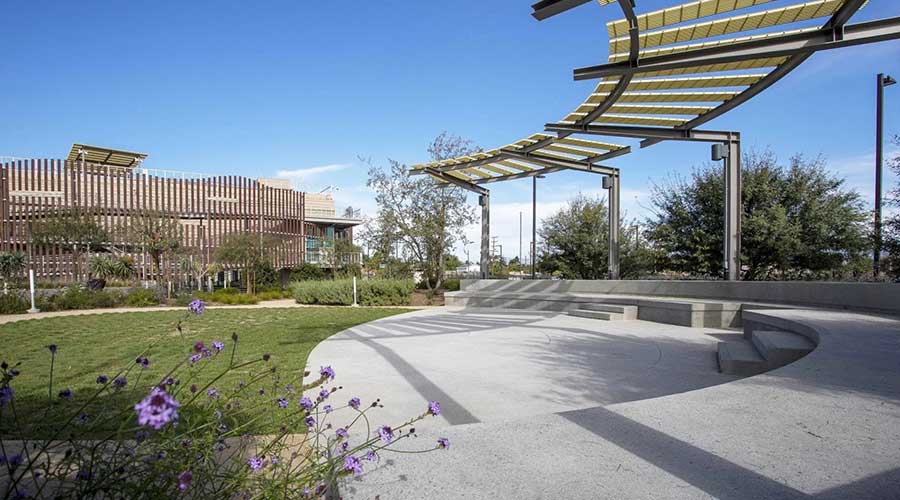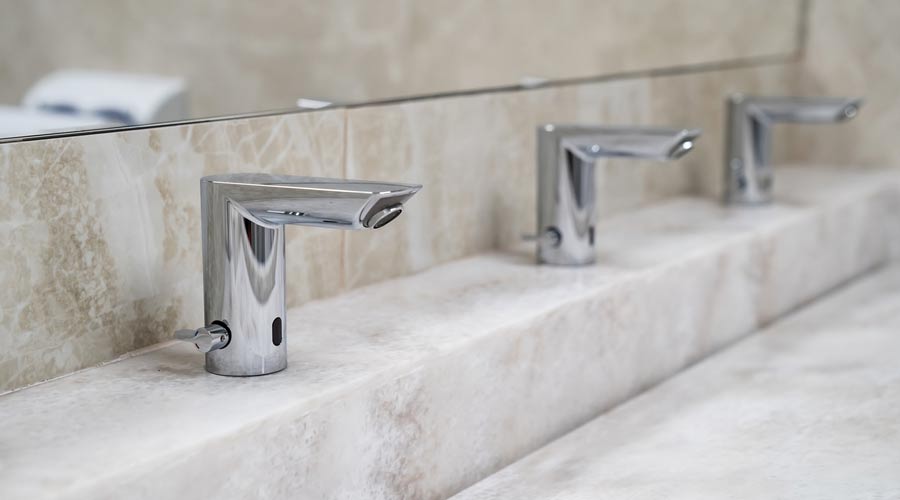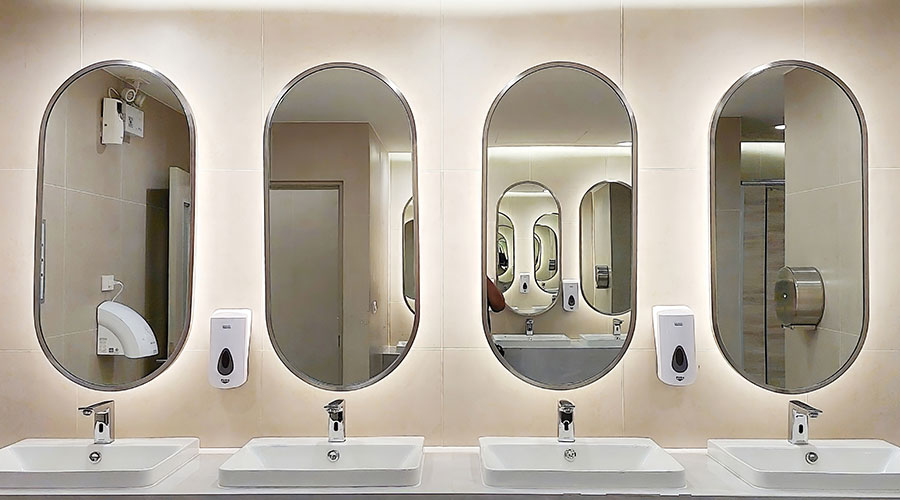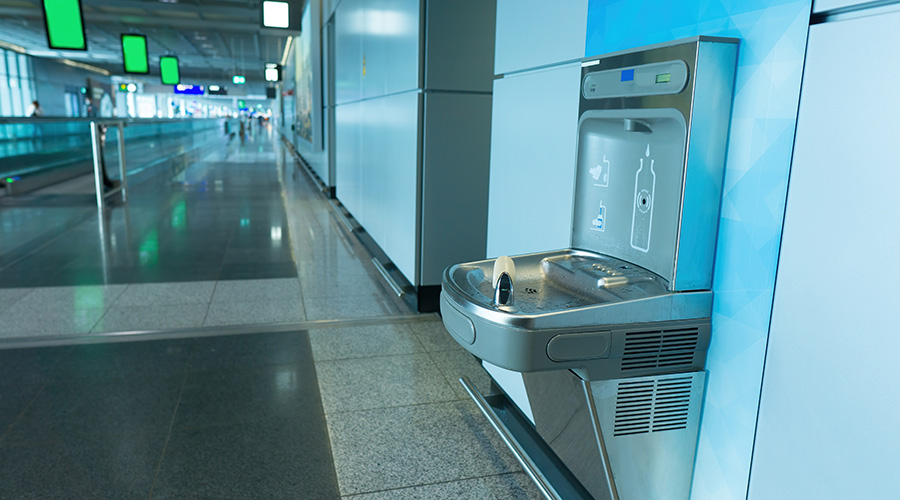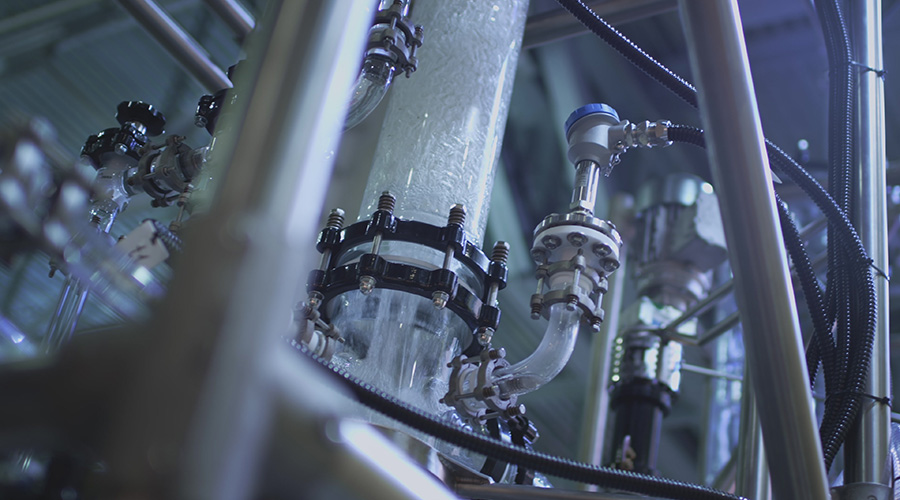Using the Landscape to Teach About Water Usage
Water treatment plant’s landscape design incorporates stormwater capture, drought-tolerant plants, a green roof, and more.
The Water Replenishment District of Southern California’s Albert Robles Recycling and Environmental Learning (ARC, formerly the Ground Water Reliability Improvement Project) is a 5.2 acre advanced water treatment facility campus.
Located on the west bank of the San Gabriel River in Pico Rivera, the Water Replenishment District of Southern California’s Albert Robles Center for Recycling and Environmental Learning features a 45,000-square-foot advanced water treatment plant and a 24,150-square-foot, two-story administration and learning center nestled amongst an extensive demonstration landscape.
The facility’s goal is to teach the local community about water reuse and water education and the surrounding landscape is an integral part of that. The grounds also include space to host seminars and events.
During the course of development, the buildings' general architectural aesthetic and Studio-MLA’s site landscape concepts and theme — in collaboration with Tetra Tech — were created through several phases, including community outreach input with the surrounding neighborhoods. The final results are a facility that achieved LEED Platinum.
Telling a story
 As part of an interdisciplinary team, Studio-MLA crafted a landscape design that reflects both the adjacency to the San Gabriel River and the many layers that are representative of the water story in Southern California. As an abstraction of the river, Tetra Tech and Pacific Aquascape collaborated on the water feature to tells the river’s story, depicting the river’s path from the headwaters in the mountains to the urban channel, the spreading grounds, and finally the mouth of the river reaching the ocean.
As part of an interdisciplinary team, Studio-MLA crafted a landscape design that reflects both the adjacency to the San Gabriel River and the many layers that are representative of the water story in Southern California. As an abstraction of the river, Tetra Tech and Pacific Aquascape collaborated on the water feature to tells the river’s story, depicting the river’s path from the headwaters in the mountains to the urban channel, the spreading grounds, and finally the mouth of the river reaching the ocean.
Educational gardens
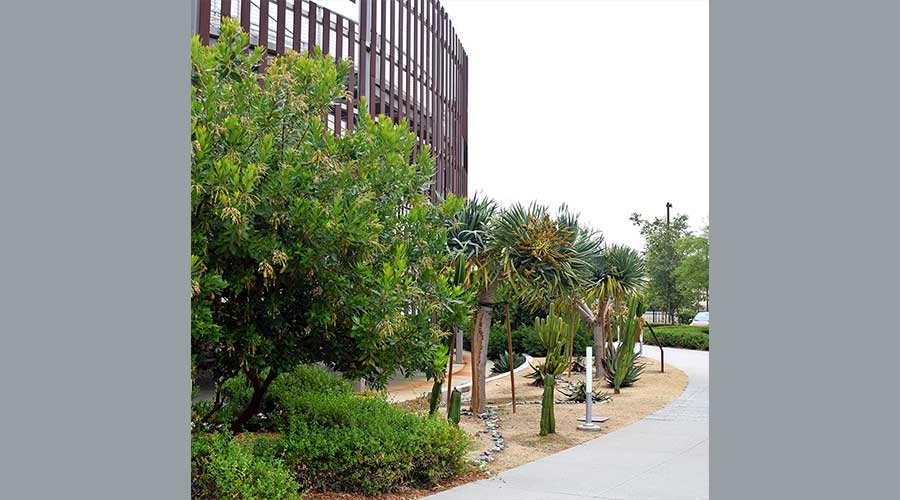 The landscape design incorporates a range of stormwater capture and infiltration strategies including pervious paving, bioretention basins, and a 10,000-square-foot green roof. Demonstration gardens highlight native and drought-tolerant plants while providing an educational venue for the public as well as professional landscaping teams through WRD’s “Eco-Gardener” education program.
The landscape design incorporates a range of stormwater capture and infiltration strategies including pervious paving, bioretention basins, and a 10,000-square-foot green roof. Demonstration gardens highlight native and drought-tolerant plants while providing an educational venue for the public as well as professional landscaping teams through WRD’s “Eco-Gardener” education program.
Doing its job
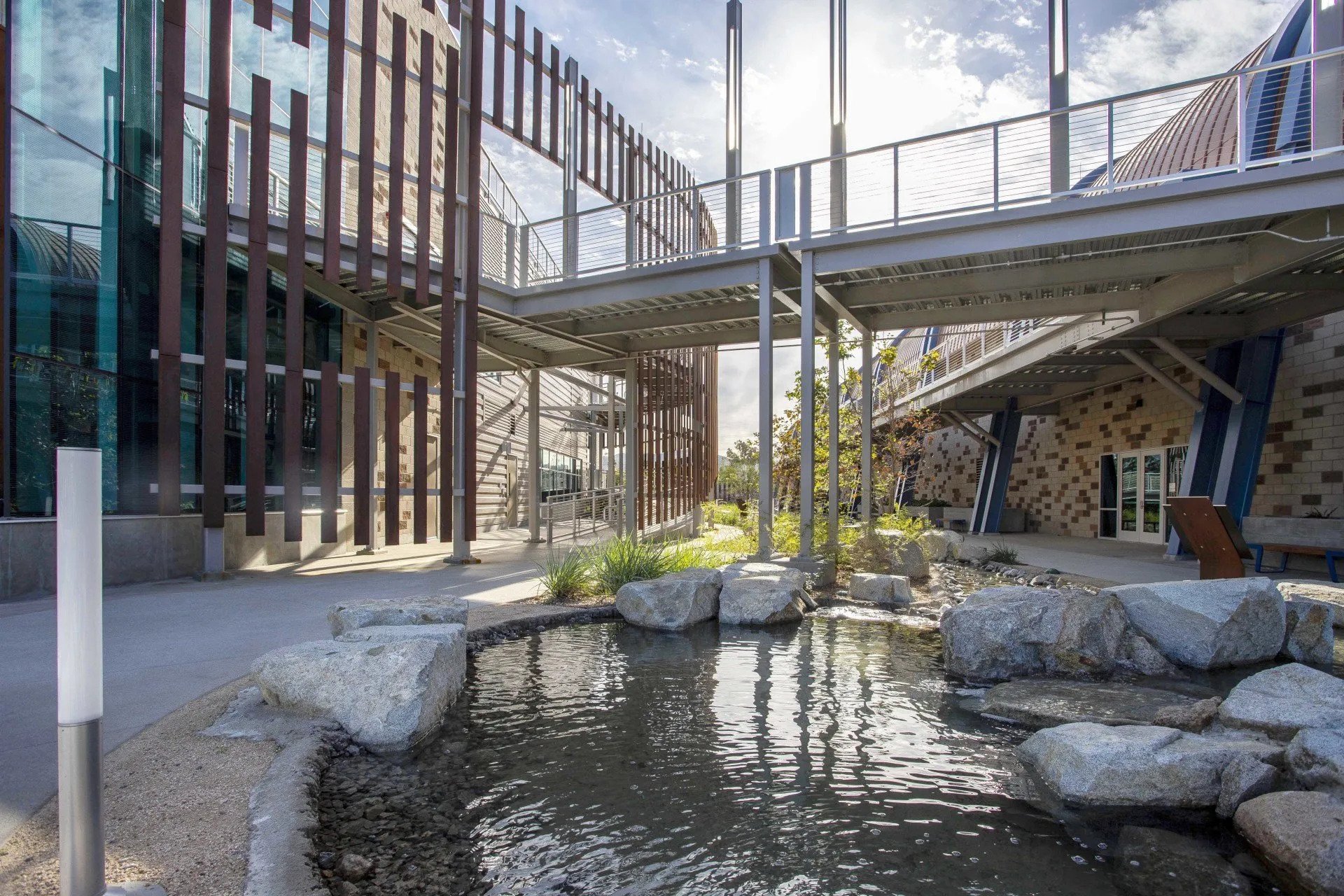 The water treatment design includes ultrafiltration, reverse osmosis, and ultraviolet technologies. The plant is designed to treat 14 million gallons of groundwater per day and is expandable to 28 million gallons per day.
The water treatment design includes ultrafiltration, reverse osmosis, and ultraviolet technologies. The plant is designed to treat 14 million gallons of groundwater per day and is expandable to 28 million gallons per day.
Related Topics:








